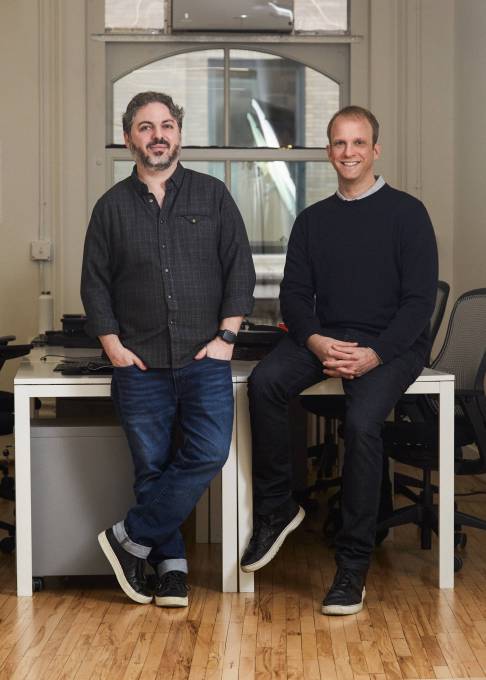When Daniel Simon sold Bread, a consumer purchase finance and payments startup he’d co-founded, to Alliance Data Systems for over $500 million late last year, he quickly set his sights on building another startup.
During the pandemic, Simon says he observed how much strain was placed on what he described as ‘real-world’ businesses and their employees — such as truck drivers, plumbers, HVAC installers and last-mile delivery people — “and how little the last decade of innovation in fintech has done to meet the needs of the vast and vital fleets segment.”
So he teamed up with former Lyft exec Andrew Woolf to found Coast, a company that is aiming to meet those needs with the mission of becoming “the financial platform for the future of transportation.”
And today, the New York-based company is announcing it has raised $6 million in an “oversubscribed” seed round of funding led by Better Tomorrow Ventures. Avid Ventures, Bessemer Venture Partners, BoxGroup, Colle, Foundation Capital, Greycroft, and Max Levchin’s SciFi VC — as well as more than a dozen angels including founders of Plaid, Flexport, Marqeta, Bread, Albert, Addi, Lithic, and other fintech and logistics startups — also put money in the round.

Businesses that operate fleets need to enable their drivers to pay for vehicle-related expenses when they’re on the road, such as maintenance, roadside assistance and gas.
But once a fleet reaches a size of more than just a few vehicles, traditional small business credit cards are no longer sufficient because they lack the line-item level security, visibility, and controls necessary with a mobile workforce, according to Simon.
“Fleet owners need transactions to be authorized, for instance, for buying gas for the company van, not the personal car, and for filling up at the pump, not making other purchases in the gas station convenience store,” he said.
Historically, fleets have turned to specialized fleet and fuel credit cards which provide controls like restricting purchases to only fuel products of a particular grade or tracking expenses on a per-vehicle basis. But Simon argues that the companies that sell such cards were founded decades ago with very little innovation since.
Coast’s goal is to use technology to provide fleet business owners and their employees payments products that are intuitive and easy to use.
“They need their employee and vehicle payments integrated into the rest of their operations, and they need fair and transparent financial products that are simple to understand,” Simon said. Bottom line, he wants to bring the “same sort of ease of use and transparency that Bread brought to e-commerce consumers and retailers to a category of business and employee that is often overlooked in tech.”
Coast’s first product, which is set to launch later this year, is a commercial fuel charge card. Drivers will be able use a physical Coast card they keep in their wallet or a shared Coast card in the vehicle, and when they swipe it at a pump at any merchant that takes Visa, Simon says Coast will conduct a “rapid review of a complex set of rules to enforce the fleet business’s policies and flag potentially fraudulent transactions.”
“No need for entering data prompted by the pump – the driver fills up and is on their way,” he said.
Fleet owners and managers can use Coast’s web portal to assign drivers and vehicles, set policies and rules about who can purchase what, how much, how often, and when. They can also get reporting and alerts on their expense policies and potential abuse. At the end of the month, they will be able pay their Coast balance in full.
Down the line, the company plans to add integrations into major accounting platforms as well as into telematics platforms that provide real-time data on vehicle status and location “so it can provide actionable spending insights back to fleet managers.” Over time, Coast also plans to expand into more categories of fleet businesses’ spending as it seeks to become more of a holistic platform for the industry.
Sheel Mohnot of Better Tomorrow Ventures, who took a seat on Coast’s board as part of the financing, says his firm was impressed by both the size of the opportunity and the team at Coast that’s tackling it.
“The space is one of those massive unsexy categories with huge incumbents that most people have never heard of but customers — who are forced to use them — universally despise. It’s the perfect recipe for a startup to come in and disrupt it with a much better experience,” Mohnot told TechCrunch via e-mail. “Similar to what Ramp or Brex do for startups, Coast does for fleet operators – it helps them control their spending so they can focus on growing their business.”






























Comment